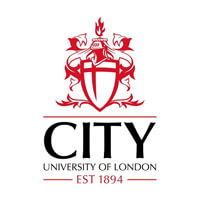fees waived
Civil and Infrastructure Engineering, BEng (Hons)
City, University of London, United Kingdom
Subject ranking
UK / ARWU 2024 21st
UK / CUG 2024 32nd
UK / THE 2025 36th
Costs
food & rentS$25.1K / year
Entry requirements
Scholarships
Limited quantity
Information
Code
Intakes
Website (External)
Programmes
Information
Duration
2028
This degree equips you with the knowledge and skills to design resilient, sustainable civil and infrastructure engineering facilities, focusing on structural, geotechnical, and hydraulic engineering. Through digital and data-driven approaches, you will explore innovative solutions for a low-carbon future, building professional skills over three years via individual and group projects. Prepare for careers with consultants or contractors, contributing to sustainable infrastructure such as buildings, motorways, bridges, and energy systems.The program includes modules on engineering fundamentals in Year 1, specialisation in geology and mechanics in Year 2, and advanced topics like geotechnical design and construction management in Year 3. Assessment involves coursework, exams, design studies, and project reports, with grades weighted towards later years. Benefits include industry links, access to world-leading labs, optional placements with firms like Arup, and a path to Chartered Engineer status through accreditation.
You’ll develop a strong technical background for civil and infrastructure engineering. Year 1 Our shared engineering first year allows you to build a firm foundation in mathematics, engineering, physics, fluid mechanics, material, electronics and programming. You will take diverse engineering design projects. -The Engineering in Society - Social responsibility (15 credits) -Engineering Design 1 (15 credits) -Introduction to Mechanics of materials and manufacturing (15 credits) -Electronics - including circuits, digital and analog electronics (15 credits) -Introduction to programming (15 credits) -Engineering Science (15 credits) -Mathematics 1 (15 credits) -Introduction to Thermodynamics and Fluid Mechanics (15 credits) Year 2 You will begin to specialise through modules such as geology, soil mechanics, materials and structures, data analysis and surveying. In partnership with local engineering consultancies, you will complete a design project. -The Engineer in Society: Sustainability and Circular Economy (15 credits) -Mathematics 2 (15 credits) -Engineering Design 2 (15 credits) -Fluid Mechanics (15 credits) -Geology and Materials (15 credits) -Structural and Soil Mechanics (15 credits) -Sensor Systems, Instrumentation and Surveying (15 credits) -Data Analysis for Engineers (15 credits) Year 3 Deepen your expertise with applied modules in analysis and design of typical geotechnical, hydraulic and structural forms, using computational analysis techniques and management. You will undertake the design of urban infrastructure. -Individual project (30 credits) -The Engineer in society: Infrastructure for Net Zero (15 credits) -Finite Element Analysis of Structures (15 credits) -Geotechnical Engineering (15 credits) -Design of Urban Infrastructure (15 credits) -Hydraulics and Marine Infrastructure (15 credits) -Construction Management and BIM (15 credits)

